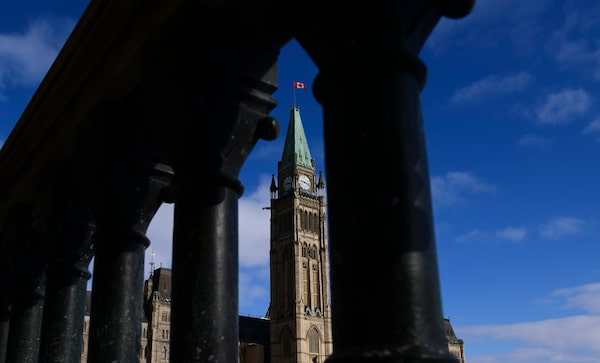
The Peace Tower on Parliament Hill in Ottawa on March 9, 2021.Sean Kilpatrick/The Canadian Press
Canadian intellectual property professionals are warning that proposed federal regulations could devastate their profession and drive up patent costs for domestic innovators.
“The government has talked about an IP action plan” to help the Canadian innovation sector, but “this is going in the opposite direction,” said Ottawa intellectual property lawyer Natalie Raffoul. “It’s a complete bumble” by the Innovation, Science and Economic Development, or ISED, department.
At issue is a change stemming from the Trudeau government’s IP strategy introduced in 2018 to address longstanding concerns that domestic innovators lacked savvy when it came to protecting their ideas. The government pledged to establish a Canadian College of Patent Agents and Trademark Agents, which would take over regulation of the profession from Ottawa. Professionals had asked for their own self-regulating body for years.
The government passed the law establishing the college and was supposed to enact regulations by this May, in time for the college to become operational. The body has hired staff, appointed a board and worked to establish policies and bylaws, but government was delayed by the 2019 summer recess, election and the pandemic.
When the government finally posted draft regulations to govern the college in the Canada Gazette on March 13, members of the profession were alarmed to read that anyone applying for a patent agent licence had to reside in Canada, a rule that didn’t exist before.
That would preclude a small number of U.S. agents who do IP work in Canada from applying directly for patents in Canada. But, thanks to a reciprocity treaty between Canada and the United States dating to the 1930s, it would also mean that more than 830 Canadian-based agents would lose the right to file for patents on behalf of their Canadian clients with the U.S. Patent and Trademark Office, in pursuit of all-important IP protection in that lucrative market.
“I cannot overstate the importance of the detrimental effects of these regulations on the profession and on innovative Canadian companies,” Ms. Raffoul wrote last month to Simon Kennedy, deputy minister of ISED. Ms. Raffoul, who has filed patents in the U.S. for Canadian companies including Nortel Networks, told The Globe and Mail that under the proposed rule, her firm and others across Canada would have to hire U.S. agents to do the work for them.
In the short-term that would add thousands of dollars of costs per patent filing by her young, often cash-strapped clients. In the longer-term, it would lead to a steep drop in her business as Canadian innovators deal directly with U.S. patent professionals.
“It’s just adding massive costs and now we’re losing credentials at a time when Canada needs IP expertise,” she said. “How do you think BlackBerry built its patent portfolio? It was built by Canadian patent agents with U.S. patent qualifications.”
The proposed change amounts to “an own goal [by government] and it means Canadian companies will be far less IP savvy,” said Waterloo, Ont., patent lawyer Jim Hinton.
Kevin Wong, co-founder and chief operating officer with Toronto software firm Nulogy Corp, added, “There’s a lot of great Canadian patent agents that I’d love to continue working with. They know our business and our IP really well. We don’t really see an advantage to the [proposed] change.”
Adam Kingsley, chief executive officer with the Intellectual Property Institute of Canada, which represents 1,800 IP agents, lawyers and professors, said the residency requirement “was completely inadvertent” on the part of government. “They didn’t understand the impact they would have on practice on our reciprocity agreement with the U.S.”
But he added he was confident the issue would be sorted out when the government updates the regulations based on its consultations, which end Monday. “I think everyone that’s been involved seems to agree there’s an issue here.”
Louis Hamann, a spokesman for Innovation Minister François-Philippe Champagne, said the government “welcomes all feedback. We will carefully review and consider all submissions before publishing any final regulations.”
Jason Hynes, a partner with IP law firm Bereskin & Parr in Waterloo, said, “I really do believe the government has heard us on this issue and that they will correct this. I don’t think anyone was actively intending to upset an 80-year-old tradition. …The government is well aware of the potential consequences.”
Editor’s note: An earlier version of this article misspelled Louis Hamann's surname.
Your time is valuable. Have the Top Business Headlines newsletter conveniently delivered to your inbox in the morning or evening. Sign up today.
 Sean Silcoff
Sean Silcoff